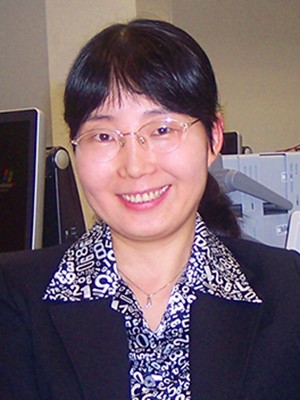Villanova Engineering Launches Associate Professor Research Fellowship Program
The College of Engineering’s Associate Professor Research (APR) Fellowship Program launched in summer 2022 with two awardees, Xiaofang (Maggie) Wang, PhD, and Rosalind Wynne, PhD, both of the Department of Electrical and Computer Engineering.
APR was established to provide additional research support to eligible associate professors who aspire to expand their research portfolio, offering professional development, finances, mentorship and coaching. This program assists faculty to become more active within the research community, broaden their professional network and develop more competitive proposals with hopes to result in awarded projects.

Xiaofang (Maggie) Wang, PhD
Associate Professor of Electrical and Computer Engineering
The recent introduction of heterogeneous system-on-chip (SoC) field programmable gate arrays (FPGAs) in cloud high-performance computing systems raises a plethora of security and privacy concerns. Dr. Wang’s research is dedicated to resource- and energy-efficient architectures that integrate hardware and software techniques for securing the on-chip memory system of cloud SoC FPGAs.
“The Associate Professor Research Fellowship offers me resources, time and mentorship support to explore new research initiatives that will significantly advance my post-tenure career development,” Dr. Wang says.

Rosalind Wynne, PhD
Associate Professor of Electrical and Computer Engineering
Treatments for chronic conditions like cancer and Alzheimer’s disease require years of development, moving slowly from bulky static cell cultures to clinical trials on animals and still not ensuring successful resolution of symptoms for the patient. Dr. Wynne’s project seeks to redefine this flawed timeline by developing optical-fiber tools for microfluidic cell cultures. By allowing a continuous flow of cells with pharmaceuticals in microscopic-sized volumes, these tiny laboratories will expedite drug development toward impactful personalized medical treatments that are not possible in conventional static cell cultures.
“The APR Fellowship has provided me with the resources to enhance my research trajectory and expand my collaborative research community,” she says. “The schedule flexibility and grant development support provided by the fellowship are key to my research scholarship advancement.”
